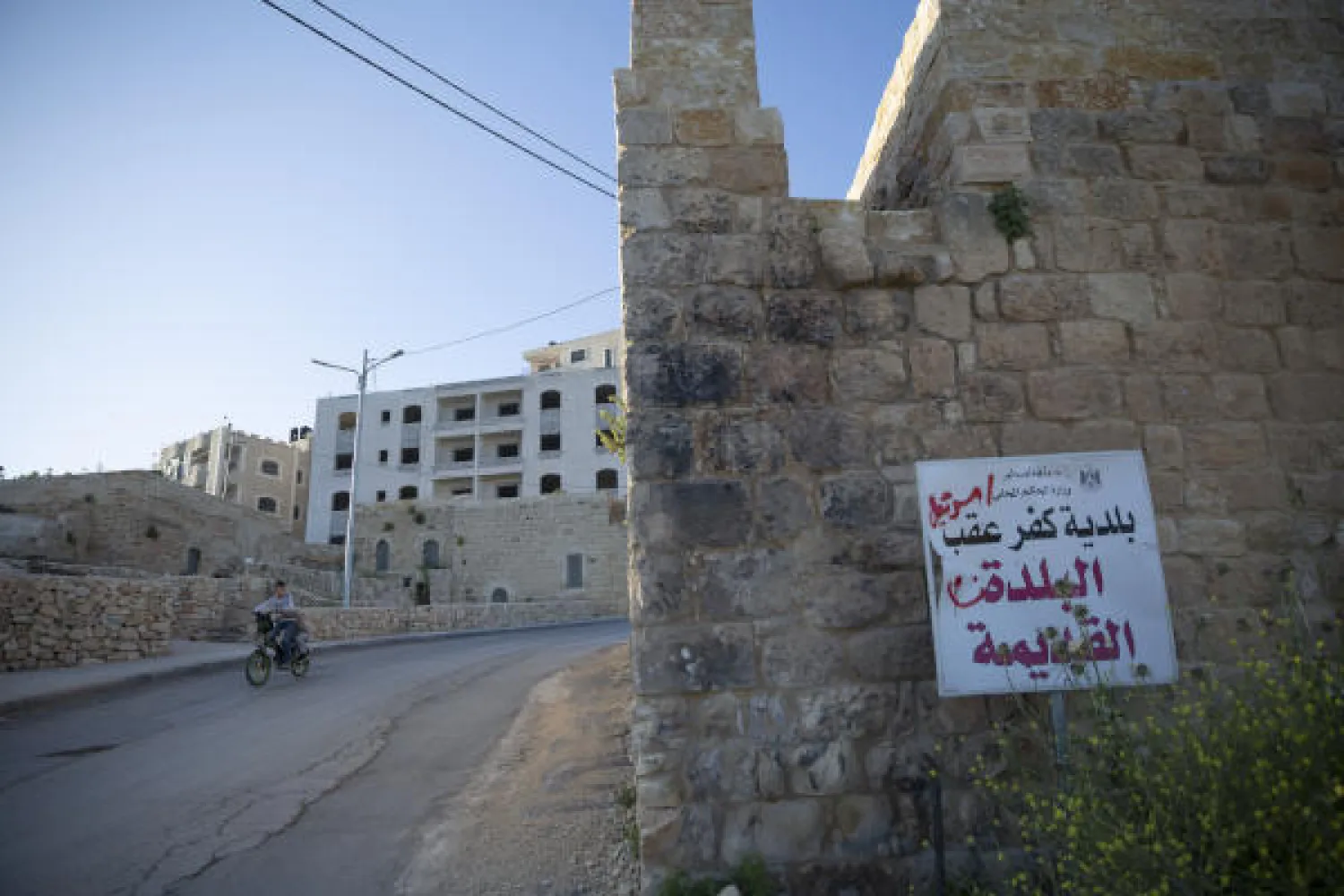Community leaders in a Palestinian neighborhood on the outskirts of Jerusalem tried o impose lockdown and quarantine measures to protect residents after the spread of the novel coronavirus.
However, the problem was the absence of police to enforce the measures.
Kufr Aqab is within the Israeli-drawn municipal boundary of Jerusalem, which Israel views as its unified capital. It is therefore off-limits to the Palestinian Authority, which is headquartered in the nearby city of Ramallah and governs parts of the occupied West Bank.
But the neighborhood is on the opposite side of the separation barrier Israel built in the mid-2000s, so the Israeli police don't go there either, the Associated Press (AP) reported.
“This is no man’s land,” said Mayor Raed Hamdan.
When the neighborhood council set up checkpoints to restrict movement in or out, it had to rely on local volunteers. When it ordered businesses to close and people to stay home, they refused.
Now the town has at least 21 confirmed coronavirus cases, according to Sameh Abu Rumaila, the head of a local health committee that, like everything else, is run by volunteers. The committee estimates that another 500 people in the densely populated neighborhood have been in contact with those who were infected, but is powerless to isolate them.
“No one can control those people and put them into quarantine,” he said. Most have Jerusalem residency, allowing them to travel more or less freely in the West Bank, Jerusalem and Israel.
Rumaila says the town is a “ticking bomb.”
Israel has reported more than 16,200 cases and at least 235 deaths, while the Palestinian Authority has reported more than 330 cases and two fatalities. Both imposed heavy restrictions several weeks ago to contain the outbreak, and are now starting to lift them as the rate of new infections slows.
But an estimated 120,000 people live in Kufr Aqab and other similarly ungoverned areas on the outskirts of the city. That could give rise to new outbreaks, according to AP.
Haneen, an 18-year-old resident, tested positive on April 19, along with her mother and four sisters. Her mother and one of her sisters have been hospitalized, while the others were quarantined in a hotel in Ramallah. She declined to give her last name out of privacy concerns.
Haneen and the sister who is hospitalized work inside Israel, but they were home during the two-week-long Passover holiday in early April, when much of Israel was shut down. They believe they were infected in Kufr Aqab.
“The town is open, all the shops are open, and we all go out and buy from the shops and contact other people,” she said.
“There are no police to impose law and order, only local volunteers blocking the roads to Ramallah and Jerusalem.”
“They let you pass if you argue with them,” she said.
Israel captured east Jerusalem in the 1967 war and annexed it in a move not recognized internationally. It unilaterally expanded the city's borders to take in large tracts of land — where it later built Jewish settlements — as well as areas like Kufr Aqab, which at the time were small Palestinian villages.









